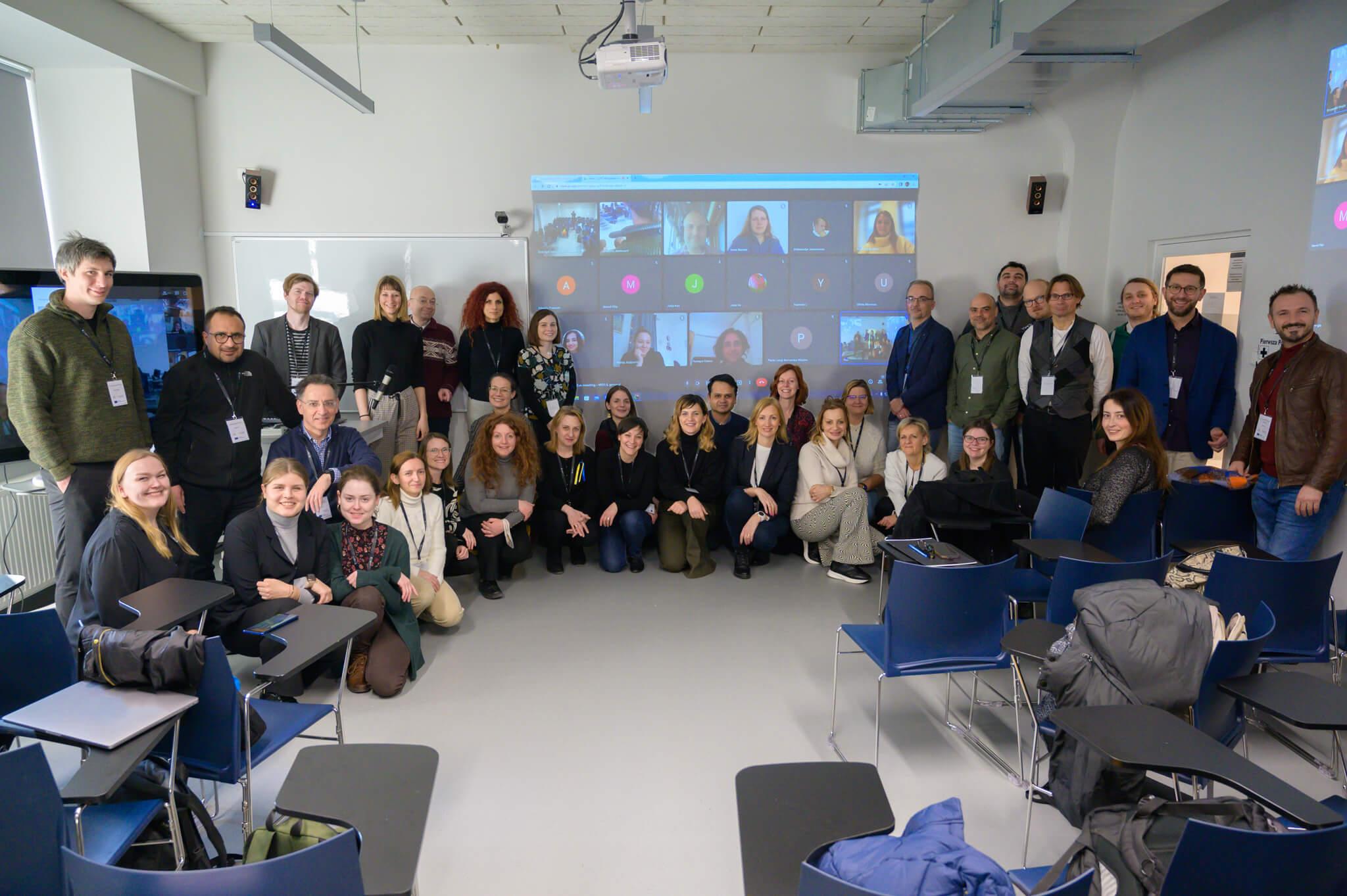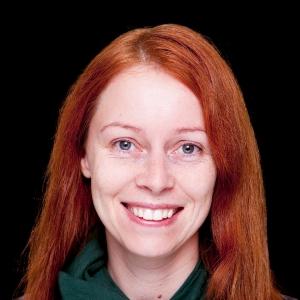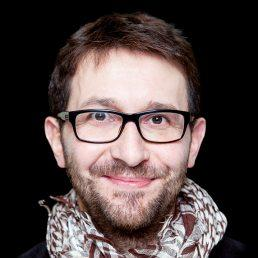International eye-tracking study
In February, SWPS University hosted the inaugural working session of the international MultiplEYE COST Action group focused on collecting eye tracking data from reading. Researchers from Albania, Croatia, Cyprus, Czech Republic, Germany, Ireland, Lithuania, Malta, the Netherlands, North Macedonia, Poland, Portugal, Switzerland, Turkey, and Ukraine, gathered virtually and in-person to take part in this interdisciplinary collaboration. Our university was represented by Izabela Krejtz, Ph.D. / Associate Professor and Krzysztof Krejtz, Ph.D. / Assistant Professor from the Institute of Psychology.
During the two-day meeting, international experts in psychology, psycholinguistics, linguistics, programming, and computer science worked together to design an eye tracking study of reading process in multiple languages, which will be conducted in their respective countries.
 Members of the MultiplEYE working group
Members of the MultiplEYE working group
The design of the MultiplEYE study aims to collect eye tracking data on reading in various languages, which will provide a foundation for further research. Eye tracking data is still sparse, especially for smaller languages, so this dataset will allow researchers to investigate many topics related to psycholinguistics and computational linguistics. The hope is that the findings will advance, among others, artificial intelligence applications that imitate the human reading process.
The interdisciplinary nature of this project has enabled a better understanding of the universal features of visual attention processes when reading a variety of text genres in different languages. The internationality of the meeting provides an opportunity to conduct research in many European countries and generalize the results to different populations and languages. Furthermore, this event expands the international cooperation of the Eye Tracking Research Center at SWPS University.
Krzysztof Krejtz, Ph.D. / Assistant Professor
Head of the Eye Tracking Research Center at SWPS University
The next step in the MultiplEYE COST Action project will be the organization of a summer school on the eye tracking method, which will take place in Lithuania.
COST — European Cooperation in Science and Technology
The MultiplEYE COST Action project is funded by the European Cooperation in Science and Technology Research Program (COST). This program promotes interdisciplinary research networks and collaboration between scientists, engineers, and representatives of small and medium-sized enterprises. The funding allocated by COST can be used to support research team meetings, participation in conferences and workshops, short scientific exchanges, and other networking activities.
Eye Tracking Research Center at SWPS University
The Eye Tracking Research Center carries out basic and applied research on the dynamics of cognitive processes such as gaze capture, human-computer interaction (HCI) – including virtual and mixed reality, multimedia in education, and accessibility of media. The goal of the Eye Tracking Research Center is to further develop the eye tracking methodology and its applications, through interdisciplinary research projects combining technology with humanities and social sciences. The lab at the Center is equipped with several remote and mobile eye-trackers and tools for researching virtual reality.
Learn more about the Eye Tracking Research Center

Ph.D. / Associate Professor
Izabela Krejtz
Is a specialist in eye-tracking method and ecological momentary assessments (EMA) in cognitive psychopathology. She researches determinants of daily wellbeing, among them the effectiveness of gratitude training. She conducts eye-tracking studies on cognitive biases in various study groups, such as hearing impaired or depressed individuals.

Ph.D. / Assistant Professor
Krzysztof Krejtz
Is a psychologist and Head of the Eye Tracking Research Center. His research interests focus on the human-computer interaction (HCI), including social aspects of using information and communication technology, methodology of eye-tracking research, and models of visual attention, in particular in the context of multimedia learning and teaching. He is one of the precursors of social psychology of the internet in Poland.